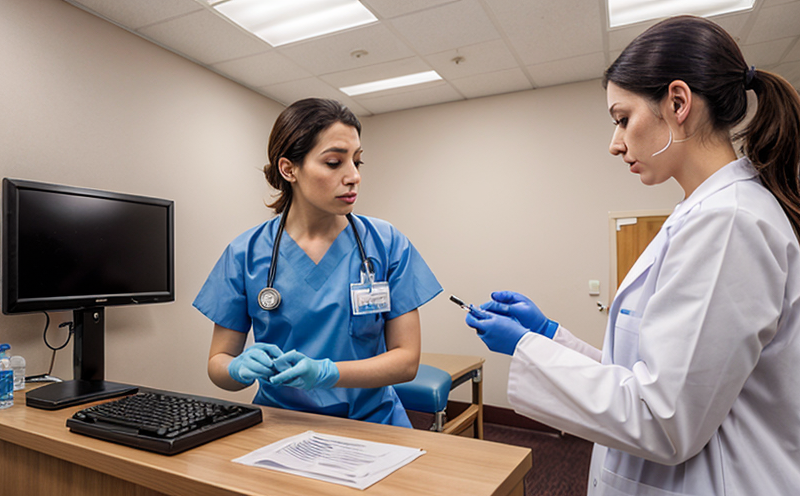Veterinary Drug Immunotoxicology Testing in Preclinical Models
Understanding and assessing the potential immunotoxicological risks associated with veterinary drugs is crucial to ensure safe and effective drug development. This service involves the use of preclinical models, such as rodents or non-human primates, to evaluate how a given drug might interact with the immune system.
The primary objective of this testing is to identify any adverse effects on the immune system that could be caused by the drug under investigation. Immunotoxicology tests are essential because even drugs intended for other purposes can have unintended impacts on the body's natural defenses, which may lead to severe health issues in animals and humans.
Our laboratory adheres to rigorous protocols based on international standards like ISO 10993-25:2017. These guidelines ensure that our testing methods are both robust and reliable, providing accurate data for decision-making at various stages of drug development.
The process begins with thorough literature review and risk assessment to determine the most appropriate model(s) based on the drug's chemical structure, intended use, and known or suspected immunological properties. Specimens undergo comprehensive preparation procedures tailored specifically for each test type. Once prepared, they are subjected to a series of tests designed to assess various aspects of immune system function.
Our state-of-the-art laboratory uses advanced instrumentation to analyze results with precision and accuracy. After completion of all testing phases, detailed reports summarizing findings along with recommendations for further actions or modifications in the drug formulation are generated.
This service plays a vital role in ensuring not only human but also animal health by identifying potential risks early on in the drug development process before they become clinically significant issues during later stages when treatments have already been administered to patients or livestock. By adhering strictly to international standards and employing cutting-edge technologies, we aim to provide reliable information that helps minimize these risks.
Applied Standards
The following internationally recognized standards guide our approach to veterinary drug immunotoxicology testing:
These standards outline comprehensive procedures for evaluating the biocompatibility of medical devices and materials, which directly apply to assessing potential immunotoxic effects in veterinary drugs.
Industry Applications
| Application Area | Description |
|---|---|
| Veterinary Medicine Research | Evaluation of new compounds for their safety profile regarding the immune system. |
| Pet Food Development | Assessing ingredient compatibility to prevent allergic reactions or other adverse effects on pets' health. |
| Zoo Animal Care | Safeguarding against immunological side effects when treating zoo animals with human pharmaceuticals. |
| Rodent & Non-Human Primate Models | Development of vaccines and treatments targeting zoonotic diseases requiring stringent safety checks. |
| Biodiversity Preservation Efforts | Evaluating environmental impact on wildlife populations exposed to contaminated environments containing veterinary drugs. |
The above applications highlight just some of the areas where our services play a critical role in maintaining high standards across multiple sectors within healthcare and beyond. Our expertise ensures that these tests contribute positively towards protecting both human and animal health while supporting sustainable practices throughout the industry.
Environmental and Sustainability Contributions
Evaluating veterinary drugs through immunotoxicology testing contributes significantly to environmental sustainability by ensuring that only safe products reach marketplaces. This reduces the likelihood of accidental contamination leading to long-term ecological damage.
By identifying potential risks early in the development stage, our tests help minimize waste generation and promote responsible use practices among veterinarians and farmers alike. Furthermore, this service supports conservation efforts by preventing harmful substances from entering natural habitats where they could disrupt delicate ecosystems.
We strive to incorporate sustainable practices into every aspect of our operations, from energy-efficient laboratory design to recycling programs for hazardous waste generated during testing processes. Our commitment extends beyond just compliance with regulations but also aims at fostering a culture of continuous improvement and innovation within the industry.





